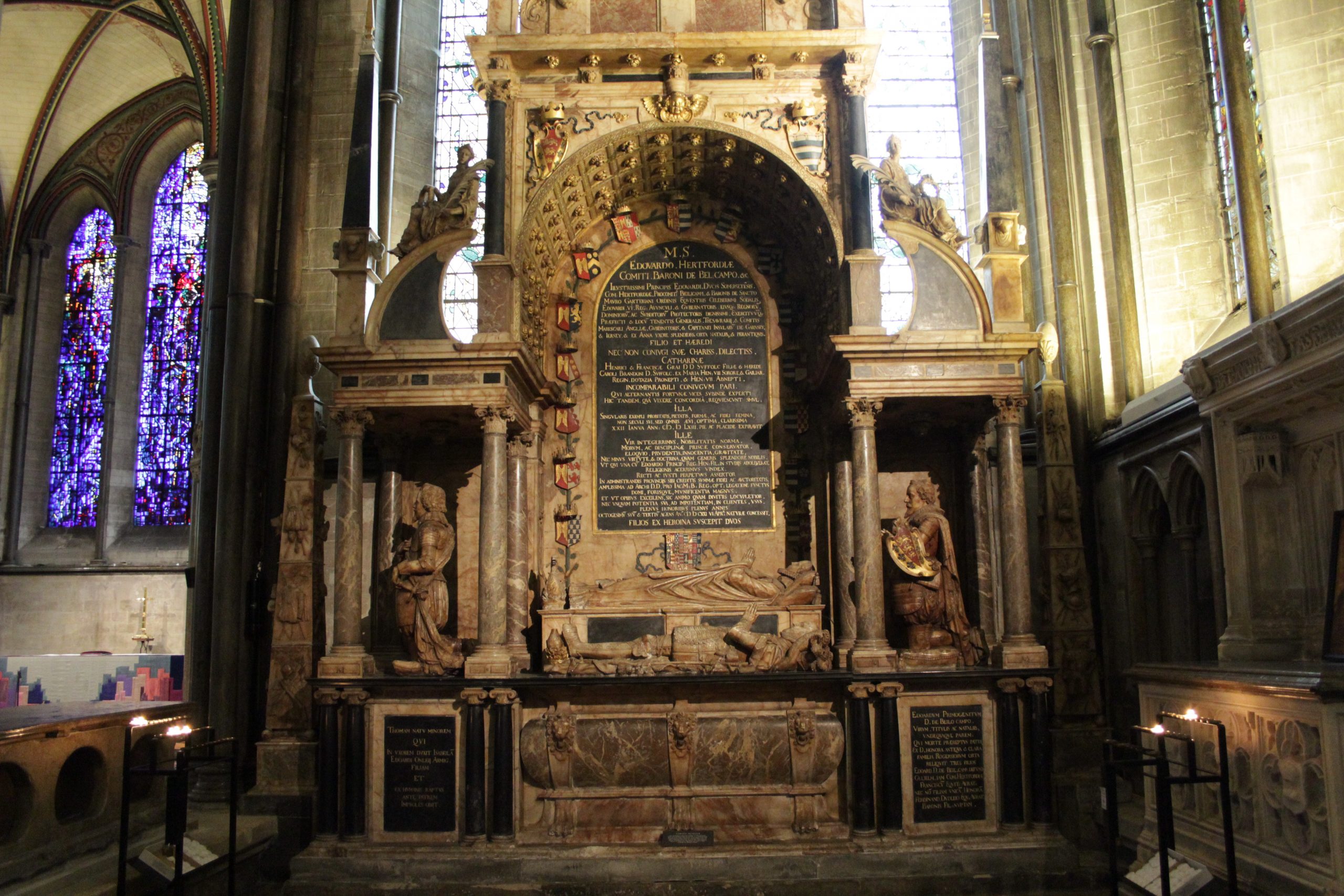New Exceptional Women Tour Launched

Salisbury Cathedral is launching a special tour to mark International Women’s Day. The tour explores the history of three women who, despite the rules of their time, wielded influence and power when women were all too often second class…
Designed by Cathedral Guide Helen Townend and her colleagues on the Wednesday Guiding team, Exceptional Women, will introduce visitors to three ‘women of substance’ whose story is intertwined with the history of the Cathedral and Wiltshire.
Ela Longespée
There are no monuments to Ela Longespée in the Cathedral, despite the fact that her husband and son both have tombs there. Ela laid one of the first foundations stones of the Cathedral in 1220 and her title and money gave King John’s illegitimate but influential brother William Longespée a place in society – even so all that remains is her ‘mark’ (a small cross) in the Cathedral archive.
Whilst playing second fiddle to William when he was alive, Ela took on many of his public duties when he died. She founded St Nicholas Hospital in Salisbury and both the monastery at Hinton Charterhouse and Lacock Abbey (eventually becoming Abbess at Lacock) – her legacy still evident today in Wiltshire.
Katherine Grey
Katherine Grey was a rebel who defined the rules of the court and married beneath her without the monarch’s permission. As the younger sister of Lady Jane Grey (the so called nine days queen who held the throne of England from 10-19 July 1553) she had a claim to the throne so was expected to toe the party line and marry according to the wishes of the sitting monarch, Queen Elizabeth 1. Instead she chose love over duty – and once her secret, unapproved marriage was disclosed she and her socially inferior husband were imprisoned in the Tower.
The ‘inequality’ of their match is forever enshrined in the couples tomb in the Cathedral, where she lies higher than her husband, recognising her superior position in society.
Helene Snakenborg
The last of the three women is Helena Snakenborg, who arrived in England in 1564 as part of a retinue from Sweden, apparently invited by Queen Elizabeth I. Two husbands later, including an unapproved marriage that nearly saw her excluded from court, Helena had established herself as an influential member of the court and confidante of Elizabeth I, who was godmother to her first child. By the time she died aged 86, she had establish a dynasty of 98 immediate descendants.
The ‘Exceptional Women Tour’ runs every Wednesday at 11:30 and is included in the general admission charges. Pre-booking is NOT necessary.




